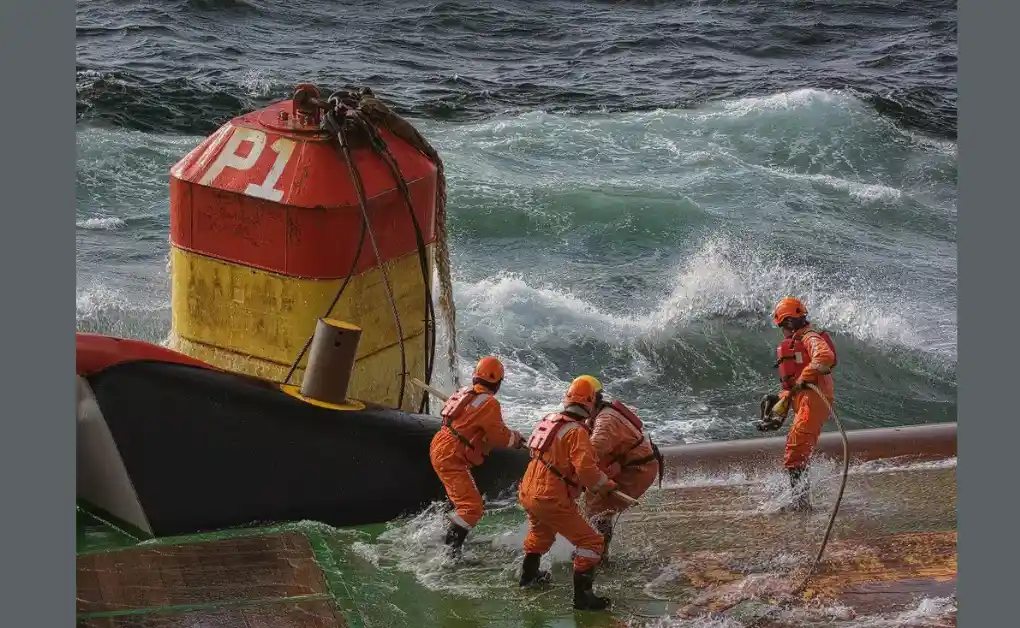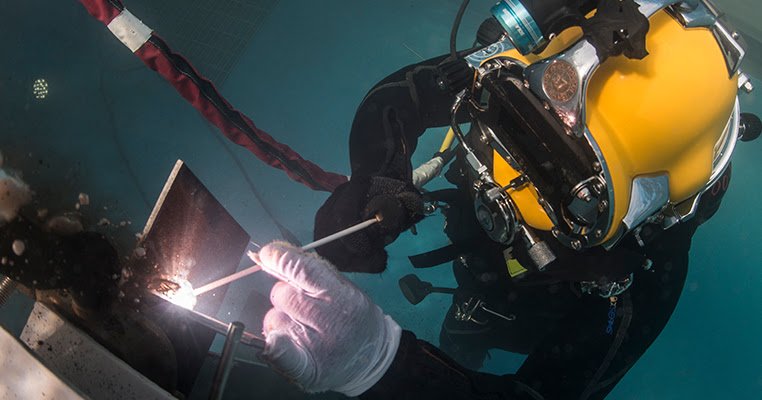Every job has its risks, but some stand out as the most dangerous jobs in the world. Whether it’s navigating treacherous waters or facing life-threatening situations daily, these careers demand immense courage, resilience, and a willingness to confront peril head-on. Would you take on one of these high-risk roles?
Airmatic, a company specializing in ductwork, extraction, and fabrication, has researched some of the world’s most hazardous jobs. Many of these jobs may be unfamiliar, but they offer a fascinating glimpse into the high-risk careers people pursue. The big question is, would you risk it for the rewards?

Crab Fisherman
Crab fishermen face freezing waters and stormy seas, particularly in Alaska, to catch crab and shellfish. These deckhands often deal with dangerous conditions like rough seas, freezing temperatures, and the risk of being thrown overboard by the steel cages used to trap crabs.

Salary: According to the Alaska Fishing Employment Centre, crab deckhands can make between $20,000 and $50,000 in just three months during the king crab season. But it’s not easy money—this job is notorious for fatalities caused by drowning, hypothermia, and harsh working conditions.
Electrical Lineman
Working as an electrical lineman means dealing with high-voltage power lines while balancing on poles at great heights. Electrocution and falls are common hazards, with workers handling cables carrying up to 500,000 volts. Fatality rates sit at 42 deaths per 100,000 workers annually.
Salary: In the U.K., electrical linemen earn an average of £34,817 per year. While the pay is decent, the risks make this one of the more dangerous hands-on jobs.
Sherpa
Sherpas guide climbers up some of the world’s tallest mountains, including Mount Everest. Despite only 800 people attempting to summit Everest annually, the death rate among Sherpas is alarmingly high due to risks like altitude sickness, exposure, and avalanches. For every 100,000 Sherpas, an estimated 4,053 deaths occur—making this one of the most dangerous jobs in the world.
Salary: Sherpas earn around $6,000 per climb, which is slightly below the average salary in Nepal, but they face risks that far exceed the rewards.
Smokejumper
Smokejumpers parachute into remote forest fires to control wildfires before they spread. While new firefighting technologies have reduced fatality rates to 2.5 per 100,000 firefighters, smokejumpers still face a high injury rate of 700 per 100,000.
Salary: While the exact salary for a smokejumper is difficult to pin down, the danger and physical demands make it a tough job with significant risk involved.
Underwater Welder
Underwater welders work on pipelines, ships, and other submerged structures. The biggest dangers come from electric shock, explosions from gas pockets, and decompression sickness. According to the Bureau of Labor Statistics, around 3.5 underwater welders per 100,000 die each year.

Salary: In the U.K., underwater welders can earn about £70,000 annually, a high salary reflecting the extreme risks involved.
Helicopter Cowboy
Herding cattle by helicopter sounds like a modern twist on an old job, but it’s incredibly dangerous. The low-flying nature of the work leads to frequent crashes, with an estimated 10 helicopter musterers dying in crashes each year.
Salary: No specific salary data is available due to the rarity of the job, but the risk is evident from the number of fatalities.
Snake Milker
A snake milker extracts venom from the fangs of venomous snakes, which is used to create life-saving antivenom. One wrong move and a snake bite can turn deadly.
Salary: In the U.K., a snake milker can make up to £30,000 per year—decent pay for such a risky job.
White Helmets
White Helmets are volunteer rescuers in Syria, entering bombed-out buildings to search for survivors. The risk of being caught in further attacks is extremely high. Since 2013, over 252 White Helmets have died, translating to a death rate of 8,400 per 100,000 volunteers.
Salary: These volunteers earn around $250 a month, a small figure for a job that demands bravery in the face of life-threatening danger.
Pearl Divers
Pearl divers search the ocean depths for some of the most valuable pearls. They dive deep without equipment, risking encounters with sharks, drowning, and decompression sickness (the bends) from ascending too quickly.
Salary: In the U.S., pearl divers can make between $51,000 and $73,000 annually, depending on their experience and success in finding rare pearls.
Bomb Squad Technician
Bomb squad technicians are responsible for identifying and deactivating explosive devices. Whether it’s defusing a crime-related bomb or an old war remnant, this job requires nerves of steel.
Salary: Bomb disposal experts in the U.K. earn between £16,000 and £45,000 per year, depending on their level of experience. The risk involved in disarming a bomb is what makes this one of the most stressful jobs in the world.
Conclusion
While these jobs pay well in some cases, they come with serious risks. Whether it’s the cold waters of Alaska or the perilous peaks of Mount Everest, the most dangerous jobs in the world demand bravery, skill, and often, the acceptance of high-risk situations. For those willing to take on these challenges, the rewards can be significant—but the dangers are always lurking.
FAQs
What are the most dangerous jobs in the world?
Some of the most dangerous jobs include crab fisherman, electrical lineman, and smokejumper, each facing unique hazards that can lead to severe injury or death.
How much do crab fishermen earn?
Crab fishermen can earn between $20,000 and $50,000 in just three months during the king crab season, despite the high risks involved.
What is the salary of a bomb squad technician?
In the U.K., bomb squad technicians earn between £16,000 and £45,000 per year, depending on their experience and the level of risk they encounter.
What risks do Sherpas face while climbing?
Sherpas face high risks such as altitude sickness, exposure to extreme weather, and avalanches, contributing to a significant mortality rate among them.
How much do smoke jumpers make?
While specific salaries for smokejumpers can vary, they are compensated for their dangerous work in combating wildfires, with average earnings reflective of the risks involved.